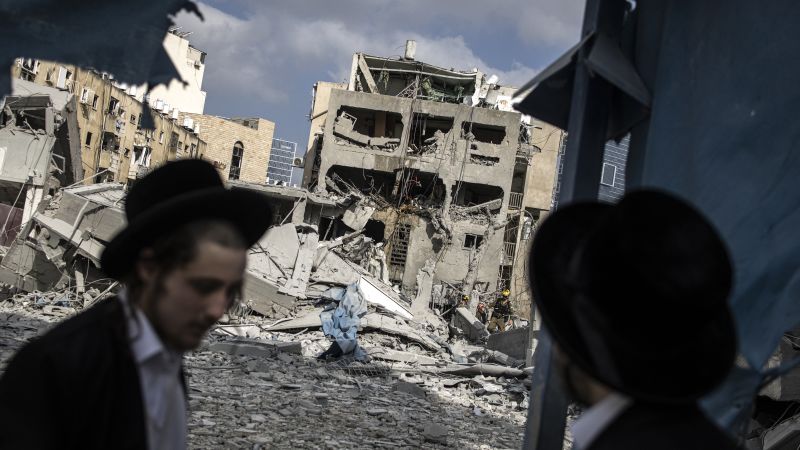Benjamin Netanyahu has reclaimed a dominant position in Israeli politics following a successful military campaign against Iran. The longest-serving prime minister in Israel’s history, Netanyahu’s fortunes shifted dramatically after initiating what Israel has called Operation Rising Lion.
“He had his Churchill moment,” remarked a coalition official, referring to the prime minister’s nickname, ‘Bibi’. Just a day before the operation commenced, Netanyahu’s government was facing a confidence vote, with threats from two ultra-Orthodox parties to withdraw their support. However, he managed to secure survival in the vote by a significant margin.
Following the military attack on Iran, Netanyahu swiftly found relief from the political pressures that had been mounting against him. Complaints from ultra-Orthodox allies regarding military drafts and inflammatory remarks from far-right factions dissipated almost overnight. “The cards are in his hands. If they weren’t a week ago, they are now,” said the official close to the prime minister.
Protests that had swept across the nation—stemming from discontent over judicial reforms and the escalating war in Gaza—were stifled by orders from Israel’s Homefront Command prohibiting large gatherings. Additionally, legal troubles surrounding Netanyahu’s corruption trial have taken a back seat in the media. The plight of hostages in Gaza, held for over 600 days, has also faded from news headlines.
While Netanyahu recognizes the potential political ramifications of a successful military operation, a source within his circle noted that it is not his primary concern at the moment. “If we are doing something good for Israel, it’s good to us,” the source stated. “It’s good for you electorally, it’s good for you with the voters … He will harvest this in the future.”
The shift in political sentiment has also been notable, with the opposition transforming from critics to supporters of Netanyahu’s actions. “This time, we have unity almost all over the Knesset, except from the Arab parties, and we have unity in the people,” the source added.
Iran has consistently played a pivotal role in Netanyahu’s political narrative, with his legacy intertwined with warnings about Tehran’s ambitions. He infamously showcased a drawing of a bomb at the United Nations General Assembly in 2012 to emphasize the dangers of Iran’s nuclear program, repeating this messaging over the years.
Israel perceives its most profound threat not from an individual adversary, but from a coalition of foes, including Hamas, Hezbollah, and Iranian proxies based in Syria and Iraq. The attacks initiated by Hamas on October 7, 2023, aimed at provoking this collective nightmare, though the responses from other factions proved more restrained than anticipated.
Hezbollah initiated attacks against Israel the day after the Hamas strike, but they were far less aggressive than feared. Previous retaliatory actions by Iran in the past year, along with drone strikes from the Houthis in Yemen, failed to develop into significant threats.
Former U.S. Ambassador to Israel, Dan Shapiro, noted, “They’ve kind of broken down the axis into the more manageable parts,” allowing Israel to concentrate its efforts on Iran with diminished concerns of a broad retaliatory strike. This now poses less risk for Netanyahu, who, with a waning political career, may be inclined to make bolder decisions. “At his age, he has much less of a political career left to lose. So it’s easier to throw the caution that held him back in the past to the wind, especially to reach for a career-defining goal,” Shapiro added.
However, the success of the Iranian military campaign in bolstering Netanyahu’s sagging poll numbers remains uncertain. Yohanan Plesner, president of the Israeli Democracy Institute, cautioned that broad political consensus on confronting Iran might undermine any individual credit Netanyahu could seek from these actions. “It’s a tremendous consensus around the need for Israel to do the utmost to prevent Iran from becoming nuclear,” Plesner said.
Further complicating Netanyahu’s position is the ongoing war in Gaza, which currently lacks a clear resolution or post-conflict strategy. A prolonged military engagement could jeopardize Netanyahu’s standing if it fails to yield significant diplomatic achievements. “The ability of the government to translate the military successes into an advantageous diplomatic outcome is yet to be determined,” he concluded.

